Beyond Swiss Touchlines: The Soft Power Stakes in UEFA Women's EURO 2025's Group of Influence
Four nations, one group, global stakes. Gavin Price unpacks how Group D at WEURO25 could reshape sports diplomacy and boost national global profiles at Europe’s premier women’s football tournament.
When France, England, the Netherlands, and Wales-Cymru converge on Swiss pitches for Group D of the UEFA Women's EURO 2025 Championships (WEURO25) this July, the stakes extend far beyond qualification for the knockout rounds. This quartet of nations brings to the tournament four contrasting approaches to sports diplomacy —each representing a different strategy for projecting soft power and influence through sport on the global stage.
While tournament headlines will naturally focus on tactical formations, stunning goals and star players, an equally sophisticated contest will unfold in parallel: a diplomatic arena where mega-event strategies, commercial innovation, cultural sovereignty, strategic messaging and storytelling compete with the same intensity as the players themselves. Each match becomes a showcase not just of footballing prowess, but of national approaches to international engagement.
Each nation in Group D will adopt a divergent approach to sports diplomacy, shaped by its unique context, capabilities, and strategic goals. The Netherlands integrates sport with business and trade promotion in a seamless, systematic manner. Wales champions a cohesive whole-of-nation model that weaves together its language, heritage, culture, and the creative industries. France prioritises global visibility through the hosting of major international events, leveraging its rich cultural assets and soft power. England, by contrast, represents a case of relative untapped potential: despite the high profile succcess of the Lionesses (England women’s national team), the rapidly growing English Women's Super League, and men's powerhouse Premier League competitions, its strategic national messaging through the beautiful game remains inconsistent — often blurring the lines between brand UK, brand Britain and brand England.
Together, these four contrasting approaches offer a compelling snapshot of how modern nations deploy sport as a tool of international influence. What follows is an illustrative — not exhaustive — overview, recognising that each country’s sports diplomacy approach remains in flux, shaped by a dynamic interplay of government, sport, business, academia, and civil society.
The Netherlands: Where business meets sports

Dutch sports diplomacy functions like a precision-engineered machine, anchored by the Orange Sports Forum (OSF), which seamlessly aligns government, business, and sporting bodies into a unified ecosystem. It goes beyond promoting Dutch football or athletic prowess — instead, it positions the Netherlands as one of Europe’s leading hubs for sports-driven innovation, international trade, and commercial partnership. Through strategically curated events and global engagements, sport becomes a gateway to economic diplomacy and global influence.
The model's strength lies in strategic integration. For instance, water management expertise might travel alongside football infrastructure projects, while engineering solutions are packaged with hockey coaching programs. Through the OSF network, sport becomes both market opportunity and diplomatic instrument, creating multiple pathways for international partnerships that extend well beyond competition.
The launch of the Orange Sports Hub Spain in Barcelona in May 2024 demonstrates this integrated approach, providing Dutch companies direct access to Spain's rapidly evolving sports ecosystem ahead of the 2030 men’s FIFA World Cup taking place in Morocco, Portugal and Spain. The hub's inaugural event at Real Club de Polo de Barcelona brought together over 50 influential stakeholders from Spanish clubs, federations, companies, and governmental organisations, demonstrating how the Netherlands creates strategic entry points into lucrative international markets.
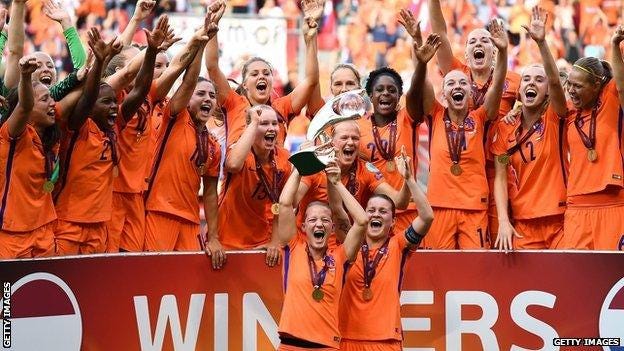
The Dutch sports diplomacy ecosystem is continuing to evolve with increasing agility. Complementing the activities of the OSF, the Dutch Sports Council's "Strategic Plan 2032" signals a deliberate diversification toward values-driven programming while maintaining commercial pragmatism. The "Football 4 Everyone" Oranje Cup in Indonesia demonstrates this balance, delivering genuine social impact while indirectly advancing Dutch business, political and diaspora interests—embodying the dual-purpose nature of modern Dutch sports diplomacy.
Moreover, a recently signed (2024) partnership with the Australian Institute of Sport also supports this diversifying model in practice. While ostensibly focused on elite performance sharing and technology transfer — with Australia using the Netherlands as a training and performance hub for European-based athletes and competitions — it simultaneously fosters strategic relationships in the Asia-Pacific region, a vast geographic area of immense strategic and economic importance to major powers worldwide. The Netherlands has created what might be termed "adaptive sports diplomacy"— maintaining strategic coherence while responding fluidly to evolving international dynamics and partner needs.
This flexible yet systematic approach to Dutch sports diplomacy contrasts with how other Group D nations have developed their own diplomatic strategies to address different challenges and opportunities.
France: Diplomatic recalibration through spectacular event hosting

While the Netherlands focuses on business integration, French sports diplomacy operates on an altogether different scale, with the French Government transforming major events into platforms for international relationship-building and cultural projection. This strategy now carries unmistakable urgency, driven by recent diplomatic setbacks that have compromised France's traditional international standing and necessitated a deliberate campaign to rebuild and recalibrate its global engagement approach.
Recent expulsions and withdrawals of French forces from Niger, Burkina Faso, and Mali — where Russian supported mercenaries have attempted to take their place — pose fundamental challenges to France's African sphere of influence. These setbacks, coupled with territorial disputes in the Indian Ocean and ongoing tensions in the French overseas territory of New Caledonia, have forced France to rethink how it projects power and sustains international influence. Against this backdrop, sports diplomacy has evolved from a prestige project into a strategic imperative for the French Government’s Ministry for Europe and Foreign Affairs.
The 2024 Paris Olympics and Paralympics embodied this recalibrated approach, functioning as France's most high-profile exercise in diplomatic recovery. By hosting over 100 heads of state, including 11 African leaders, the formal convening power of the Olympic Games provided France with unprecedented opportunities to rebuild strained relationships with key international stakeholders while reaffirming its credentials as a global leader.
This sporting diplomatic approach gained considerable additional momentum through France's innovative Cultural Olympiad program, which demonstrated advanced understanding of how cultural assets can elevate sporting spectacle. By reimagining the city of Paris itself as a living Olympic canvas, France showcased its unique capacity to blend high culture with mass appeal — a diplomatic asset few nations can rival.
Beach volleyball unfolded against the Eiffel Tower, fencing took place in the Grand Palais, and the gardens of Versailles hosted equestrian events. Iconic public spaces such as Pont Alexandre III and Place de la Concorde became vibrant venues for cycling, triathlon, and street sports, while major cultural institutions — from the Louvre to the Centre Pompidou — curated tailored exhibitions. Hundreds of free public art installations, performances, and murals engaged both Parisians and international visitors, creating immersive cultural-sport diplomacy experiences that extended far beyond traditional Olympic boundaries.
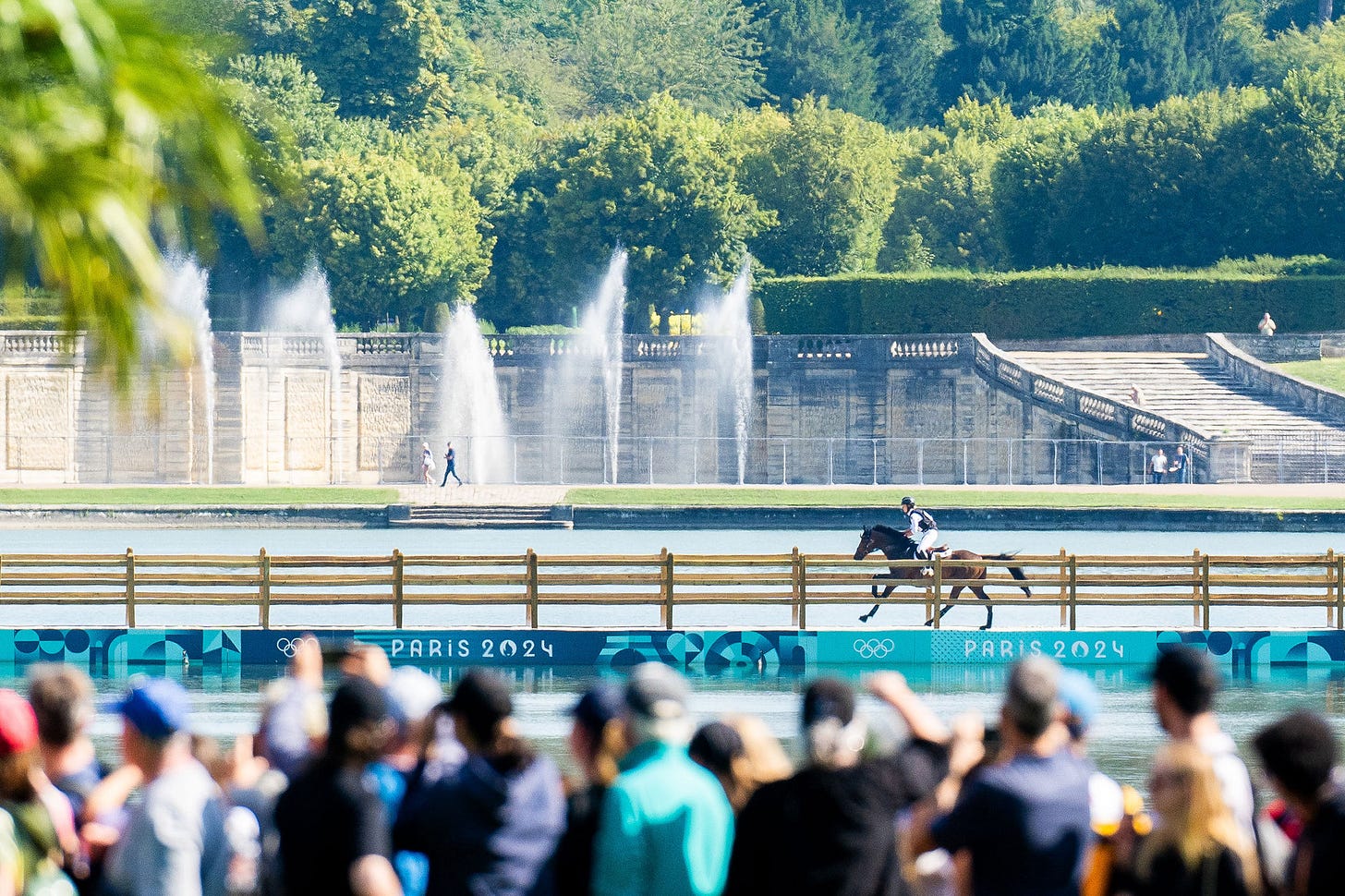
In addition, France's renewed sporting diplomatic swagger found further expression through Paris 2024's groundbreaking commitment to gender parity. As the first Olympic Games to achieve 50:50 male-female team participation, the event aligned with the IOC's social inclusion agenda, transforming sporting achievement into progressive Olympic diplomacy. The Games projected French values through deliberate programming decisions: women's competitions secured prime broadcasting slots, while the athletics program concluded with the women's marathon for the first time in Olympic history.
The International Olympic Committee's (IOC) updated Olympic Charter provided the institutional framework for this transformation, establishing Olympic participation as a platform for championing parity across sport, governance, and international representation. However, this progress illuminated persistent challenges — despite achieving participant parity, coaching representation remained starkly imbalanced, with women comprising only one in ten coaches, underscoring the deeper systemic barriers to full gender equality in Olympic sport.
The success of France's spectacular hosting approach to sports diplomacy raises fundamental questions about sustainability and long-term diplomatic impact. While grand-scale events undoubtedly generate significant diplomatic attention and demonstrate national capacity, their effectiveness in producing lasting dividends remains contested. Early evidence suggests a dual outcome: immediate relationship-building opportunities emerge alongside genuine policy influence, yet the mega-event model may inherently constrain the development of enduring partnerships. This structural limitation stands in marked contrast to the systematic, network-building approaches to sports diplomacy adopted by nations such as Australia, New Zealand and Wales whose sustained engagement strategies with priority partner nations and other important actors prioritise long-term relationship cultivation over episodic spectacle.
The French model's ultimate effectiveness may therefore depend on its ability to translate spectacular moments into sustained diplomatic engagement beyond the closing ceremony of major sports and cultural events.
Wales: Creative sovereignty and cultural nationhood through whole of nation, networked sports diplomacy
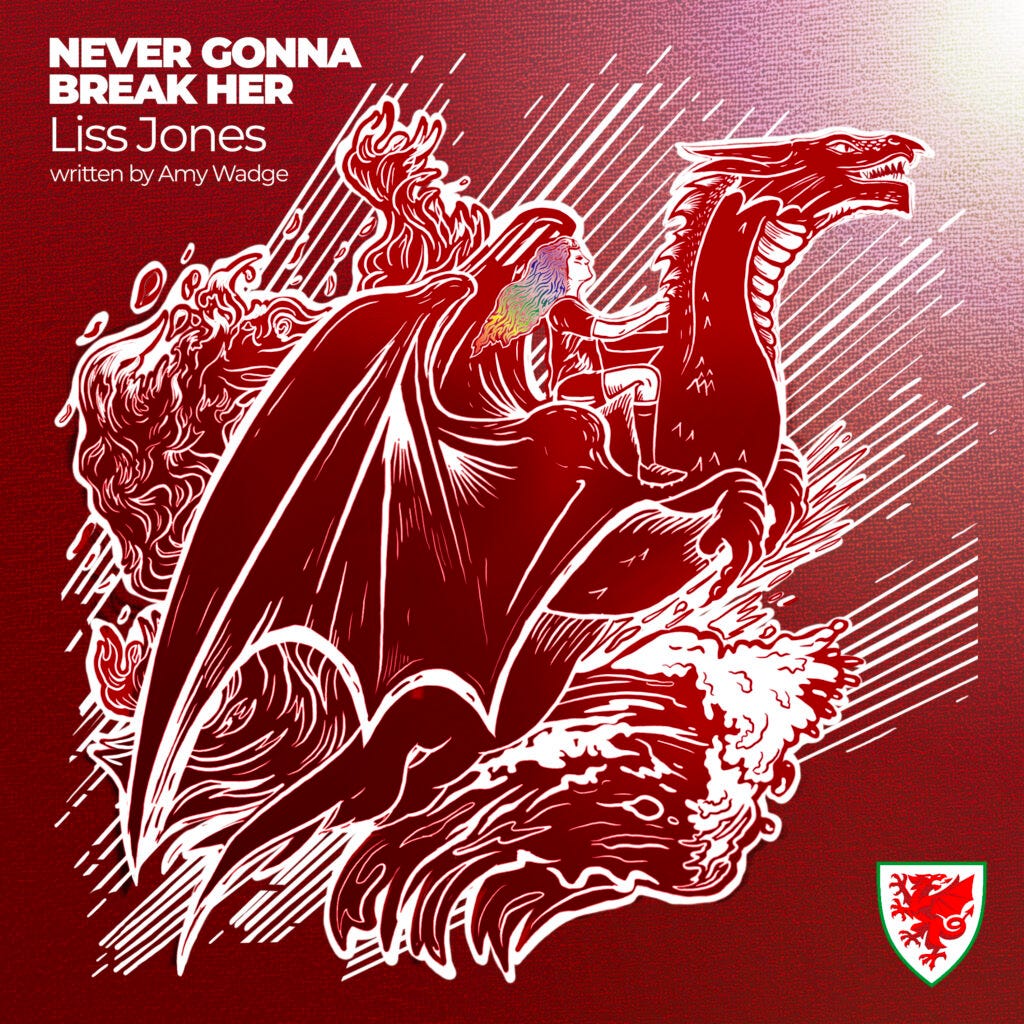
While France leans on institutional grandeur and mega-event spectacle, and the Netherlands capitalises on business networks forged through sport, Welsh sports diplomacy may represent the most innovative model in Group D. It shows how smaller nations can project disproportionate international influence through strategic creativity and whole-of-society coordination. Wales has cultivated what might be called “creative sovereignty” through sports diplomacy and wider cultural relations — leveraging and synergising its full kitbag of cultural assets to achieve diplomatic impact despite limited formal political autonomy within the UK system.
The Team Wales model (Tîm Cymru in Welsh-Cymraeg) represents a one nation approach to sports diplomacy. It brings together government, business, academia, civil society, and cultural and sporting organisations at every level — working in concert to enable major international sporting events as diplomatic and engagement opportunities, not just sporting fixtures. This strategy goes far beyond cheering on Welsh teams. It’s about projecting Wales’ identity, language, values, culture and creative talent to the world through sytematically planned cross-disciplinary programming. In doing so, Wales offers a compelling template for how substate nations and other prominent non-state actors can compete on the global diplomatic stage alongside sovereign nations.
Wales’ sports diplomacy rests on something powerful: football and wider sporting sovereignty. As an independent footballing nation and full member of FIFA and UEFA, Wales holds the same voting power and governance influence as global giants of the world game like Germany, Brazil, Spain, Argentina or France. That sporting sovereignty isn’t limited to football — it extends to rugby union, rugby league, field hockey, darts, netball, snooker and other sports. While Wales lacks full political autonomy within the UK, it punches well above its weight on the global sporting stage.
A standout example? Professor Laura McAllister, from Cardiff University and the Football Association of Wales, was recently appointed as a Vice-President of UEFA’s top-tier Executive Committee. It’s a clear sign of how Wales is shaping international decisions from the inside — accessing elite-levels forums and influence that even formal political structures might not offer. In this way, sport becomes a form of diplomacy that breaks the mould: a means for smaller or substate nations to engage the world on their own terms.
Wales’ 2022 FIFA Men’s World Cup Finals campaign in Qatar showcased the full clout of its sports diplomacy strategy. Backed by a £1.8 million Welsh Government Partnership Support Fund, 19 projects were delivered by a diverse array of Team Wales partner organisations such as the Welsh Government, Welsh Arts International, the Football Association of Wales, Welsh businesses, and Museums Wales. Collectively, these initiatives engaged over 320,000 participants across more than 2,200 events, reaching an estimated global audience of 5 million. The hallmark of this campaign was its seamless integration: for instance, the Expo’r Wal Goch festival, held in Wrexham, Swansea, and Cardiff, creatively blended football with film, fashion, and literature while foregrounding themes such as social inclusion—demonstrating how cultural celebration can double as effective public diplomacy.
Complementing this domestic sports diplomacy activity, the Lleisiau Cymru (Voices Wales) World Cup ambassador program placed high-profile Welsh cultural figures on the ground in Qatar during the World Cup finals — including former Olympic and World Champion hurdler Colin Jackson, celebrity DJ Katie Owen, and globally renowned chef Bryn Williams — who served as official sports diplomats for Wales. At the same time, the Gŵyl Cymru Festival extended Wales’ reach across the globe, coordinating more than 300 cultural, business and knowledge sharing events in over 200 locations worldwide, from New York and Montreal to Brussels and Dubai.
These initiatives exemplified how formal diplomatic engagement can be interwoven with grassroots cultural programming to create multiple entry points for international relationship-building. A prime example was the Wales v USA watch party in Washington DC, which brought together Welsh and American dignitaries while also engaging the public through pre and post-match performances and installations by Welsh and US musicians, DJs, and food producers —transforming a World cup football fixture into a full-spectrum cultural and diplomatic exchange with people-to-people engagement at all levels of society.
Building on this momentum, Wales’ qualification for UEFA Women’s EURO 2025 has triggered another ambitious round of sports diplomacy. The Welsh Government has committed £1 million across 16 new projects, ranging from community murals and coaching development to classroom resources and Welsh cultural performances in Switzerland. However, this allocation is nearly half the funding provided for the men’s World Cup campaign, raising timely and important questions about resource equity between men’s and women’s sports diplomacy. It’s a challenge that reaches far beyond Wales — prompting broader reflection on how gender equity is resourced and prioritised in international sporting investment and sports diplomacy programs.
The Welsh model of sports diplomacy proves that diplomatic creativity can effectively compensate for limited formal political sovereignty — a lesson that stands in contrast to our final case study, where vast formal resources remain strategically underutilised. The examples above only scratch the surface of Welsh football and wider sports diplomacy which continues to enable Wales to be an agile and innovative nation on the world stage.
Looking ahead, the announcement of Wales’ UEFA Women’s EURO 2025 squad by national team manager Rhian Wilkinson at the summit of Yr Wyddfa (Mount Snowdon) — Wales’ highest peak and a site of deep cultural significance — offers a compelling example of innovative football diplomacy in action. This symbolic approach not only celebrated national identity and inclusivity but also demonstrated how creative, place-based storytelling can powerfully amplify Wales’ profile on the global stage. As WEURO25 approaches, such imaginative approaches will continue to position Cymru-Wales as a leader in sports diplomacy, leveraging culture, geography, and media to engage both domestic and international audiences.
The Lionesses Roar — But Who Speaks for brand England?
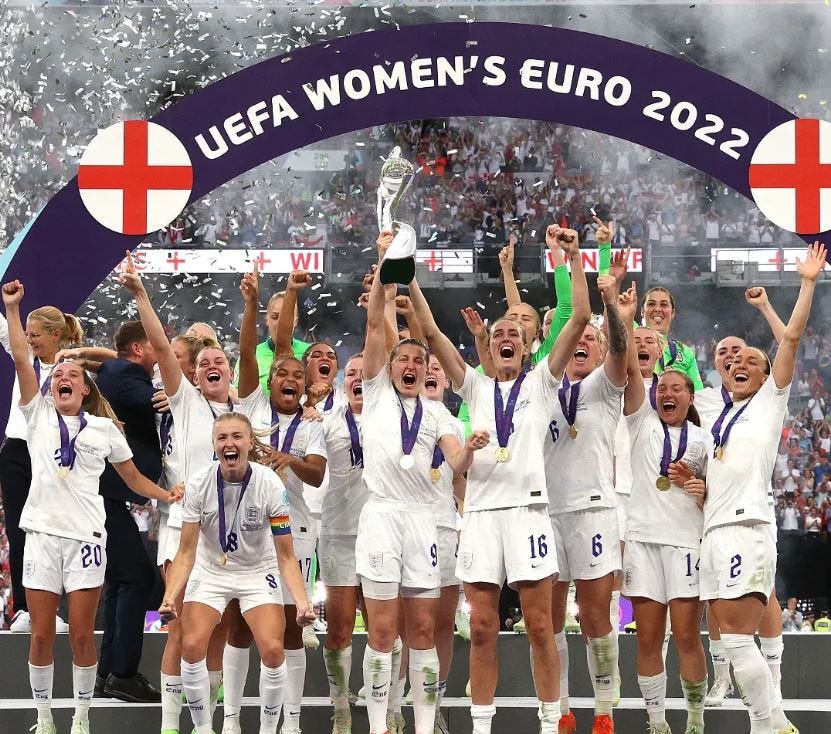
England presents the most perplexing case in Group D’s sports diplomacy landscape: a nation endowed with incredible sporting soft power assets, yet constrained by strategic confusion that hinders its ability to convert potential into international influence. As reigning UEFA Women’s European champions (WEURO22), the Lionesses arguably provide England with one of the world’s most valuable assets in women’s sport. Yet, unlike their Group D rivals, they lack a cohesive national, strategic framework that positions sport (football) as a deliberate vehicle for overtly English international engagement and nation branding — creating a paradox in which world-class sporting capital is sometimes undermined by institutional confusion.
This paradox is rooted in the heavily fragmented architecture of UK-level sports and cultural diplomacy. Where France benefits from clearly delineated ministerial coordination and the Netherlands from integrated cross-sectoral networks, England is encumbered by a political system that constrains strategic cohesion. A maze of government departments, devolved administrations, and delivery bodies operates across England and other UK nations, each with overlapping mandates but no unified strategy that distinctly articulates or advances “brand England” through the prism of sports or other cultural, economic and political channels.
As current European champions, the Lionesses represent significant cultural and diplomatic capital. Their brand embodies gender equity, elite performance, and progressive values, offering a global platform most nations would envy. Yet rather than amplifying a distinctly English narrative, their achievements are diffused through UK-wide institutions such as the Foreign Commonwealth and Development Office, British Council, and UK Sport. In contrast to Wales, which has successfully leveraged sport and wider cultural relations to project a clear and compelling national identity abroad, England’s footballing success is too often subsumed into broader “British” narratives—blurring national distinctiveness and diluting English-centric soft power potential through sports.
This institutional fragmentation fosters a form of strategic paralysis. Unlike Wales’ whole-of-society coordination or the Netherlands’ precision-engineered diplomacy, England’s engagement is hampered by distributed responsibilities, the absence of clear ministerial ownership, and a lack of central coordination. Critically, there is no outward-facing, dedicated English — or even coherent UK-wide — sports diplomacy policy to align actors or guide decision-making.
As a result, leadership in this space frequently defaults to organisations like UK Sport, which—while highly skilled in performance delivery and event management—arguably lack both the strategic mandate and the multi-dimensional expertise required to lead complex international sports diplomacy efforts. Moreover, as a UK-wide body, UK Sport must consider the interests of all four nations—an approach that, while well-intentioned and inclusive in principle, often produces strategies that are cumbersome, diluted, and rarely tailored to the distinct priorities or identities of each nation.
These organisations often prioritise metrics tied to elite sport outcomes over diplomatic objectives — an approach fundamentally out of step with the strategic, soft-power-driven models employed by England’s Group D competitors. When UK Sport positions the UK as a “world-leading, influential player” in global sport, the benefits typically serve competitive and reputational goals within the sporting system rather than broader agendas such as trade, cultural diplomacy, nation branding or international partnerships.
Wales provides a compelling counterpoint to this dilemma. Through its “Team Wales” model, it has demonstrated that targeted, progressive, identity based and cultural driven sports diplomacy can yield better tailored and more effective impact than generic, UK-wide approaches. From the global reach of its cultural programming during the 2022 men’s FIFA World Cup to its planned WEURO25 engagement initiatives, Wales has shown that diplomatic effectiveness is driven by specificity, not generality.
For England, the lesson is clear: unlocking the full value of its formidable sporting assets on the world stage requires strategic clarity, coherent governance, and a purposeful and inclusive articulation of English identity.
When Dragons Meet Lions: The Soft Power Battle Hidden in Plain Sight
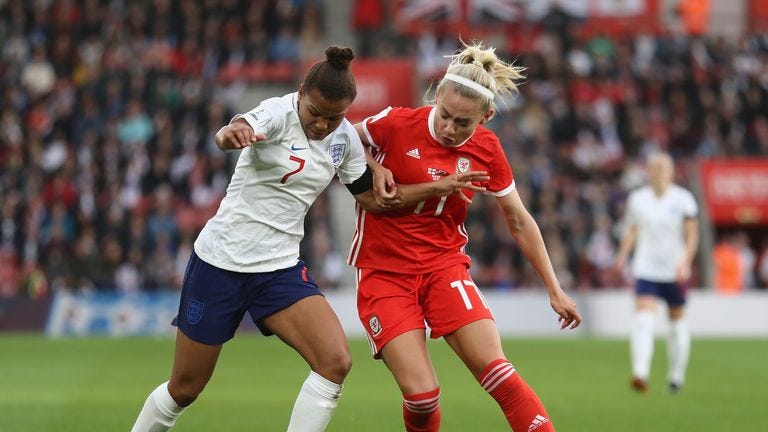
When Wales and England meet in their Group D clash at UEFA Women's EURO 2025 on 13 July, the match will showcase more than football—it will crystallise the evolving dynamics of national identity and soft power projection within the UK's complex constitutional framework. This encounter serves as a compelling case study of how distinct national sports diplomacy strategies can emerge and flourish within a multinational state, highlighting both the opportunities and tensions inherent in such arrangements.
Wales has established itself as an exemplar of confident, culturally grounded sports diplomacy that transcends its size and formal political status. Through initiatives like the Welsh Government's international strategy and its emphasis on cultural authenticity in sporting contexts, Wales has developed a blueprint that resonates globally — particularly among small nations and substate entities seeking to project influence through sport. This approach demonstrates how overtly Welsh cultural clarity, rather than generic UK-level messaging, can amplify a nation's voice on the international stage.
As earlier discussed in this article, England, by contrast, finds itself navigating more ambiguous territory. Despite possessing considerable sporting assets and cultural capital, its sports diplomacy often becomes subsumed within UK-wide narratives orchestrated by institutions such as the Department for Culture, Media and Sport, the Foreign, Commonwealth and Development Office, and UK Sport. This institutional architecture, while serving certain coordination functions, can inadvertently dilute England's distinctive voice and obscure its specific contributions to global sporting discourse.
The challenge extends beyond simple recognition politics. As devolved administrations and regional municipalities across the UK gain confidence and sophistication in their international engagement, the traditional centre-periphery model of UK soft power requires fundamental recalibration. Wales, Scotland, and Northern Ireland are no longer content to serve merely as cultural footnotes to a London-centric narrative; they are active protagonists crafting their own international identities through sport and culture.
This evolution demands a more nuanced understanding of when unity serves the collective interest and when diversity strengthens the whole. The upcoming men's UEFA EURO 2028 tournament, co-hosted by the UK nations of England, Wales and Scotland, and the European Union nation of the Republic of Ireland, presents both an opportunity and a test case for this new paradigm. Rather than forcing artificial uniformity, the tournament could showcase how complementary national approaches enhance rather than undermine collective impact. Significantly, both Wales and the Republic of Ireland are currently leading the way with outward-facing sports diplomacy strategies and frameworks already in place.
Certain domains naturally lend themselves to collaborative, UK or whole of tournament level coordination. Women's and girls' leadership in sport, social inclusion initiatives, and sustainability programmes benefit from shared resources, coordinated research, and unified advocacy on international platforms. These issues transcend national boundaries and gain credibility through collective weight and expertise.
However, other areas — nation branding, trade and tourism promotion, and cultural diplomacy — derive their power precisely from their distinctiveness. Wales' success in this regard demonstrates how authenticity and cultural specificity can create more compelling narratives than homogenised messaging. The Welsh approach suggests that soft power is most effective when it emerges organically from genuine cultural and social contexts rather than being imposed through administrative convenience.
For England, this presents both a challenge and an opportunity. Having long operated within the comfortable assumption that UK soft power naturally reflected English interests and values, England now faces the more complex task of articulating its own distinctive contribution to global sporting culture. This is not about diminishing the UK framework but about recognising that England's soft power potential — like Wales'— may be maximised through clearer articulation of its specific identity and values.
The Wales-England encounter at WEURO25 thus represents more than a sporting fixture; it embodies the broader question of how modern multinational states can harness rather than suppress the diplomatic potential of their constituent nations and regions. The match will be watched not only by football fans but by observers interested in how small nations project influence and how larger entities adapt to increasingly sophisticated substate diplomacy.
As the UK navigates its post-Brexit identity and seeks to maintain global relevance, the Welsh model offers valuable insights. Rather than viewing devolved nation diplomacy as a challenge to UK coherence, Westminster might recognise it as an asset that enhances rather than undermines collective influence. The question is not whether the UK should speak with one voice, but when that unified voice adds genuine value and when it risks drowning out the very diversity that makes the UK's soft power offer distinctive in an increasingly multipolar world.
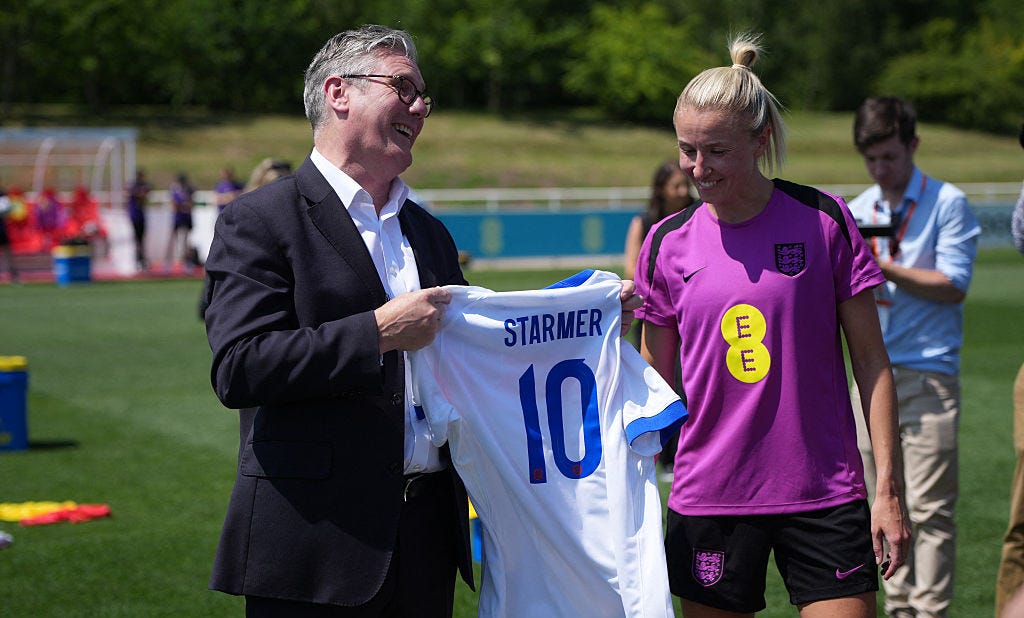
Summary: Beyond the final whistle
Group D at UEFA Women’s EURO 2025 is more than a sporting contest — it is a live testbed for contemporary sports diplomacy strategies. Each nation offers a distinct pathway: the Netherlands blends commercial innovation with values-driven outreach; France leverages mega-events for diplomatic recalibration; Wales pioneers creative sovereignty through whole-of-society mobilisation; and England, despite its arsenal of soft power sports assets, illustrates the cost of strategic confusion.
This tournament highlights how women’s football and wider sporting pursuits now plays an increasingly significant role in global soft power. It reveals how cultural influence, international reputation, and foreign policy priorities are being contested not just in ministries, but on pitches, in fan zones, and across media landscapes.
Ultimately, the real winner of the sports diplomacy game may be the nation that not only excels on the field, but also champions progressive values, social inclusion, and visible leadership in girls’ and women’s sport and business. In a world where identity, influence, and diplomacy increasingly intersect, Group D reminds us that the future of international engagement may lie in those who turn the beautiful game into a credible vehicle for meaningful, inclusive change.





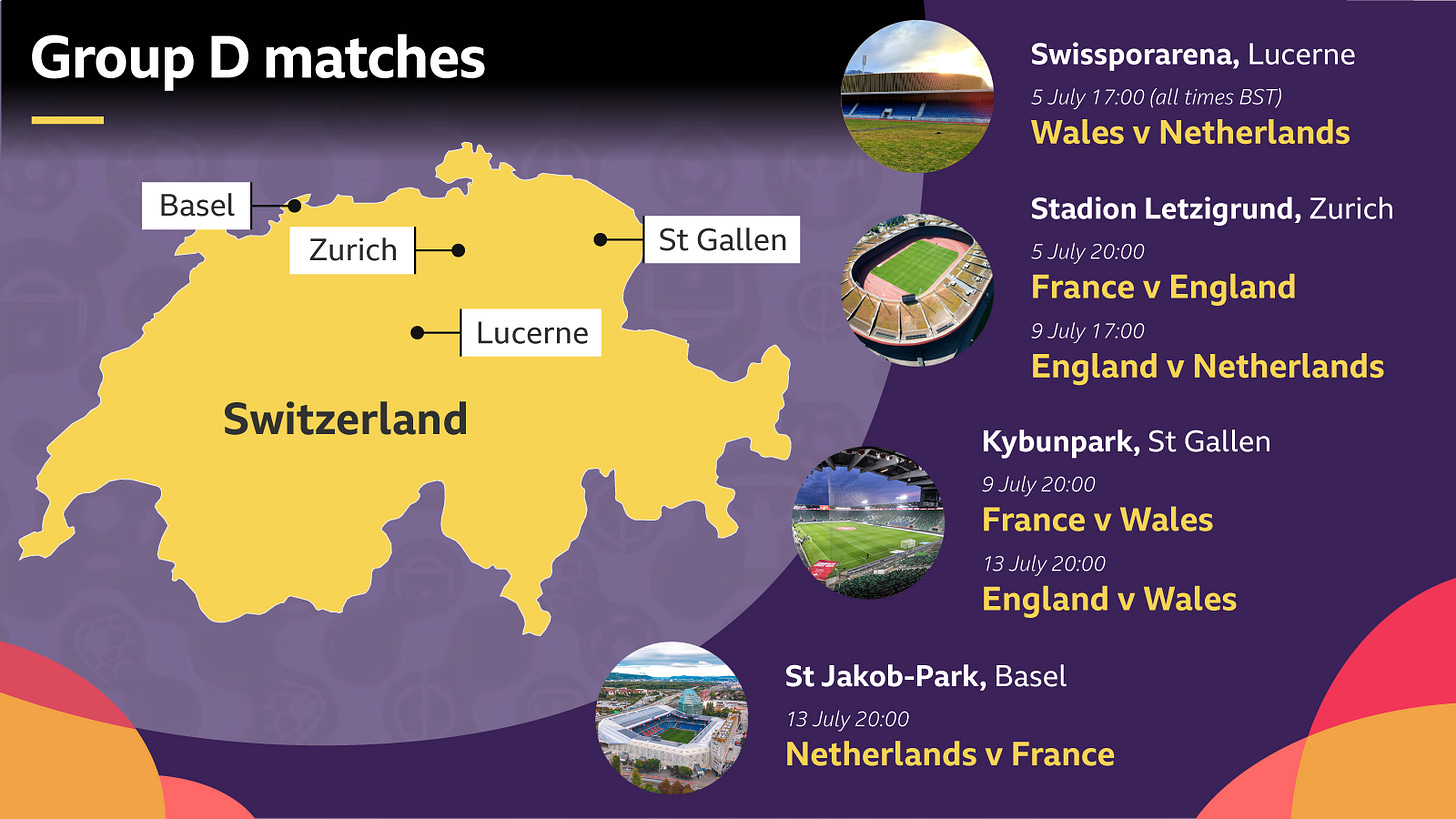
Good stuff Gavin. Keep it coming!
I hope everyone likes the audio podcast style overview, I have added - I need to train the contributors to pronounce the Welsh (Cymraeg) words properly :) - a work in progress, but hopefully the audio is helpful for those who want a quick audio deep dive of my article on the move!